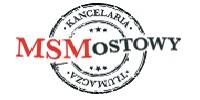Consecutive Interpreting
This type of interpreting is most commonly used during conferences, lectures, public speaking, general meetings, celebrations of entering into marriage. The interpreter starts interpreting after the speaker finishes his speech. The speaker pauses every few sentences to allow the interpreter to interpret. Usually, consecutive interpreting translator stands or sits next to the speaker and uses the note – taking form. Consecutive interpreting technique is the selection of the most important information.
The settlement of such interpreting is based on an hourly rate.
Simultaneous Interpreting
Interpreting takes place in a soundproof booth. Interpreter using headphones receives content in the source language and at the same time interprets it into the target language speaking into a microphone. Interpreter starts 3 seconds later and ends with the speaker. Simultaneous interpreting is very exhausting, that is why the interpreters work in pairs, usually changing every 20 minutes. Interpreter receives support materials related to the topic of the meeting in advance to have time to prepare for the presented topics.
Settlement of simultaneous interpreting is based on 4-hour blocks.
Whispered Interpreting (Chuchotage)
Chuchotage or whispered interpreting is a form of whispered simultaneous interpreting for which no interpreting equipment is required. It concerns the group up to 3 persons. Interpreter in a low voice or whispering interprets precisely what the speaker is saying. The technique used in court, during conferences, presentations, company meetings.
Conference Interpreting
Such interpreting can occur simultaneously, consecutively or in the whispered form.
Sight Interpreting (A- Vista)
In this kind of translation interpreter receives hand written text and have to translate it orally. Interpreter reads the text piece by piece and interprets progressively in a manner in which the content of the document can be easily understood by the client. For translation to be smooth, the interpreter must survey most of the text and translate it into the target language. It is nowadays the most commonly used form in environments such as courtrooms, notarial offices (notarial deeds), criminal justice, Registry Office. The court, prosecutors, police and border guards are assisted by a sworn translator in interpreting and then must appoint an interpreter for the activity as an interpreter – court appointed expert..
The settlement of such interpreting is based on an hourly rate.
If the meeting takes place outside the office of an interpreter, then the customer in addition to the rates for the translation itself covers the costs of interpreter’s travel and stay.
Remuneration and working conditions for interpreting is specifically defined. The interpreter’s working time is counted from the hour for which he was ordered. Every commenced hour is counted as complete. All breaks for the participants of the meeting or conference shall also apply to an interpreter and are included in his working time.
KANCELARIA TŁUMACZA MS MOSTOWY
al. Krasińskiego 1 pok. 508, 31-111 Kraków
(“Jubilat” building)
Opening hours:
Monday – friday 9:00 – 16:50
Bank account:
Kancelaria Tłumacza MS Mostowy
al. Krasińskiego 1 pok. 508, 31-111 Kraków, Poland
PL 44 1140 2004 0000 3202 7868 0570
SWIFT: BREXPLPWMBK
mBank S.A. FORMERLY BRE BANK S.A. (RETAIL BANKING) LODZ
Skrytka pocztowa 2108, 90-959 Łódź 2
